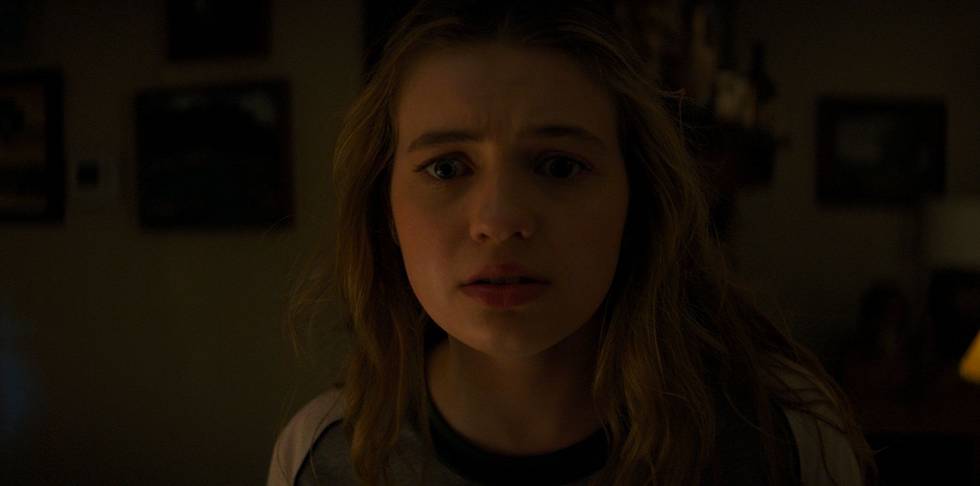Amazon Prime continues its pattern of high-concept teen-driven shows like the incredibly effective “The Wilds” with today’s full-season drop of “Panic,” based on the 2014 book of the same name by Lauren Oliver. With a very smart premise that incorporates the dread of being a teenager into a literal life-or-death situation, there’s a wasted great idea at the center of “Panic,” and a reasonably strong young cast circling around it, trying to find something weighty to hold onto. There was a time when Oliver’s book would have made for an intense, entertaining 100-minute movie, but it strains under the pressure of a 10-episode season. Even for teenagers eager to take on the world, more isn’t always better.
“Panic” unfolds in the small town of Carp, Texas (even though no one has an accent), the kind of place that takes teenage optimism and flattens it, turning bright-eyed young people into dead-eyed nobodies who never left home. Of course, every small town still has its dreamers, and the teenagers of Carp have a unique way to encourage at least one person to live out their wildest ambitions, a secret game called Panic that only the teenagers know about. Every year, the graduating seniors compete in a game of increasingly intense dares, the kind that can get people killed. Each dare produces points. For example, the game starts near a reservoir with the kind of cliff nearby that teens often dare one another to jump from. Anyone who does so in the premiere announces their participation in the game, one that will include several things that would make their parents scream, such as home invasions, crossing freeways wearing a blindfold, and maybe even Russian Roulette. And everyone remembers what happened last year when two kids died. However, the pull of $50k for the winner is too much for the new players to ignore.

Believe it or not, this “Hunger Games”-esque concept is largely just the backdrop for a relatively straightforward teen drama (with just enough sex and profanity to distinguish it from a standard offering on The CW). Take Olivia Welch (Heather Nill), the show’s leading lady and someone who seems like one of Carp’s brightest stars before her junkie mother derails her life. She has parent issues, confidence issues, and eventually romantic issues, of course, including an unexpected love triangle of sorts. Her BFF is Natalie (Jessica Sula, giving the best performance in the series), who is initially frustrated that she now has to compete in the game against Olivia but ends up working with her. The initially promising angle of two young women aligning to win a very alpha male competition is sadly pushed aside by so many town secrets and melodramatic character reveals.
Everyone in Carp has a secret. The new guy, wonderfully named Dodge Mason (Mike Faist), is so obsessed with Panic that no one will be surprised to learn he has a connection to it. Olivia’s other best friend Bishop (Camron Jones) hides more than just his obvious feelings for Olivia, while town bad boy Ray Hall (Ray Nicholson) also isn’t exactly what he seems. Even the adults, including the authorities trying to stop Panic before another teen dies, hide secrets. “Panic” is too thick with soap operatic twists that derail the honest emotion that could have emerged from this concept, one that merges typical teen rebellion and ambition with something new. Every time it pivots back to straightforward YA drama, especially in the truly poor scenes with Heather’s mom, “Panic” succumbs to mediocracy.

And yet there are elements in the cast and high concept that keep it watchable. Even as some of the young and old actors are spouting clichés, people like Sula, Nicholson, and the great Bonnie Bedelia can find some honesty under the surface. Nicholson has the kind of charisma that bodes well for his future and Sula is a fascinating young actress, the only one here who never really succumbs to the mediocre writing. But even they get lost in a show that almost seems less and less interested in the game itself or what it means.
There’s something about that period after high school graduation that leads to a different kind of rebellion, a time in a young person’s life wherein they’re pushing their own personal boundaries, figuring what they’re capable of and what they’re afraid of. Distilling that common phase of development into a high-concept series like “Panic” was a great idea (and it’s probably a fun book), but the show itself avoids its own subtext and potential in favor of superficial dialogue and motivations. The late teen years are all about urgency and passion and ambition—one just wishes “Panic” more often reflected those things too.
Whole series screened for review.












